Climate Farm School
A hybrid 4-week program combining online sessions with getting your hands dirty on a working farm. Learn about the climate impact of food systems and the solutions within them. For tech, business, and sustainability professionals, entrepreneurs, farmers, and others passionate about food and climate.
- Hybrid online and on-farm course
- 5+ on-farm days with lectures and experiential learning
- Global regenerative ag network
- 4 weeks online, including one week on-farm
- Create your food systems climate action plan
- Work alongside farmers to unlock climate solutions
Get a hands-in-the-soil view of climate solutions in food systems
Learn from farmers, soil scientists, chefs, & local food policymakers
Mitigating and adapting to climate change in complex food and ag systems requires a variety of stakeholders collaborating effectively. Hear from a diversity of them in order to understand where your skills and interests can plug into enabling and scaling climate-friendly food systems.
Expand your food systems and farming network
Build relationships with a global network of farmers, food system advocates, and like-minded peers who will support you in doing climate-positive food systems work. This community is open to you forever and will keep growing with future cohorts. We host community events even after the program.
Take professional and personal action
The Climate Farm School mission is to facilitate the conversion of millions of acres of farmland globally to regenerative, carbon sequestering, locally-controlled agroecosystems via climate educational experiences on farms. Map out how you can contribute to systemic change in food and ag, and start taking action!
UNMATCHED FACULTY
Learn from the best in the field
Dr. Laney Siegner
Founder & Co-Director, Climate Farm School
Laney recently completed her Ph.D. at the U.C. Berkeley Energy and Resources Group. She researches sustainable, agroecological food systems and climate change education, and completed several summers of sustainable agriculture work while researching for her dissertation.
She has published book chapters on teaching climate change in U.S. K-12 classrooms and on conducting participatory agroecology research. Prior to attending graduate school, she worked as a middle school teaching fellow for 2 years in Boston, MA as part of an AmeriCorps National Teaching Fellowship.
When she’s not teaching or learning, she enjoys being outside for a variety of physical activities – farming, worm composting, trail running, bird watching, or swimming in the ocean. Originally from the East Coast, she now lives in Sonoma County, California. She helped build the off-grid tiny house that she now lives in with her partner, as part of the first-ever California Tiny House Competition.
Ryan Peterson
Co-Director, Climate Farm School
Our host farmers
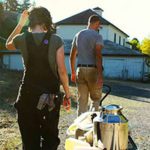
Aubrie Maze
Farm and Land Manager, Green Valley Community Farm + Mill (USA)
With a background in herbal medicine and animal husbandry, Aubrie weaves the lives of humans with our essential, connective and productive relationship with plants and animals at Green Valley. Aubrie has spent the past ten years living in intentional communities, gaining deep knowledge of the internal structures that support such communities and has dedicated her organizational skills to helping them thrive. Aubrie continues to deepen her relationship to land by raising animals alongside her partner Scott Kelley.
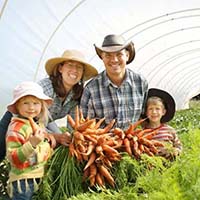
Elizabeth and Paul Kaiser
Co-Owners, Singing Frogs Farm (USA)
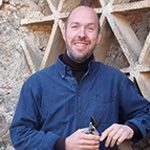
Niccolo Merighi
Farm Education Director, Spannocchia (Italy)
Niccolò is the Farm Education Director at Spannocchia. He has a background in environmental sciences and gastronomy, and is an alumni of the Universita di Scienze Gastronomiche di Pollenzo. His interest for sustainable agricultural practices comes from a sense of belonging to the land we inhabit and from a deep respect for the people that interact with it. After spending years working with organic food and producing natural wine he is now leading the educational programs at Spannocchia.
Our guest speakers
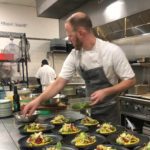
Gary Podesto
Chef and Consultant, Chez Panisse (USA)

Wanda Stewart
Executive Director, Common Vision (USA)
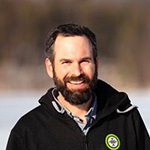
Kris Covey
Co-Founder, The Soil Inventory Project (USA)
Dr. Covey is an Assistant Professor of Environmental Studies and Sciences at Skidmore College, and Co-Founder and President of The Soil Inventory Project (TSIP). His core research focuses on quantifying the flux of greenhouse gases from terrestrial ecosystems and building solutions for managing landscapes for climate benefit. While a Postdoc and Lecturer at Yale’s School of The Environment, Dr. Covey co-founded Quick Carbon, a rapid soil carbon assessment and set of tools that has informed the development of TSIP solution. Dr. Covey and his students developed the system for distributed, producer-led soil sampling.
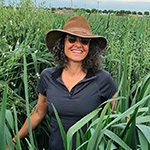
Daphne Miller
Director, Health from the Soil Up Fellowship (USA)
In a typical work week, Daphne Miller, MD spends as much time with ecologists, soil scientists, and farmers as she does with medical professionals. She is a family physician, science writer, Clinical Professor at the University of California San Francisco, and Research Scientist at the University of California Berkeley School of Public Health. As founder of the Health from the Soil Up Initiative, she studies the connections among health, culture, and agriculture, with the goal of building a healthier and more resilient food system from the soil up. Daphne is a regular health and science contributor to the Washington Post. She has two books about food, agriculture and health: The Jungle Effect, The Science and Wisdom of Traditional Diets (HarperCollins 2008) and Farmacology, Total Health from the Soil Up (HarperCollins 2013).
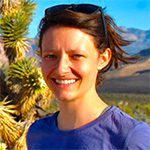
Erika Foster
Soil Ecologist, Point Blue Working Lands Team (USA)
As a Soil Ecologist Erika serves on the Point Blue Working Lands Team to help monitor rangeland carbon for ecosystem services. She contributes to protocol design and focus on the impact of conservation practices on ecosystem carbon above and belowground. Erika earned a B.S. in Natural Resource Conservation and a minor in Wilderness Studies (U of Montana, Missoula) and then completed her PhD in Ecology, in Soil and Crop Sciences (Colorado State University, Fort Collins). For her graduate research, she analyzed the impact of organic amendments, such as biochar and manure, on soil carbon sequestration and microbial nutrient cycling. She has worked internationally in Senegal and Peru as well as the western US. Erika is dedicated to environmental field education, teaching undergraduate courses for the Wild Rockies Field Institute (MT), and previously climate change and natural history courses for No Barriers Youth (CO), Gastineau Guiding (AK), and Tryon Creek State Park (OR).
Glimpses from the farm
Our farm locations
Click on the links below to find more information about each of our host farms.
Green Valley Farm + Mill
Condor’s Hope
Paicines Ranch
Hawthorne Valley Farm
Midnight’s Farm
Round the Bend Farm

Ballymaloe Cookery School
Spannocchia
La Junquera
Stay in touch
Sign up to receive monthly updates from Climate Farm School.
A passionate community
Our alumni have accomplished careers in industry, policy, and more, and have all made a commitment to focusing their career on sustainability and decarbonization. Expect a similarly accomplished peer set from the world of food nerds, ag-tech entrepreneurs, aspiring farmers, and the like.
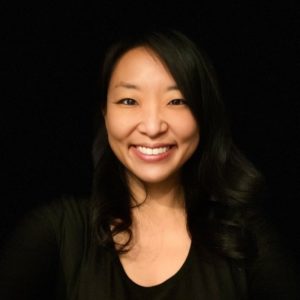

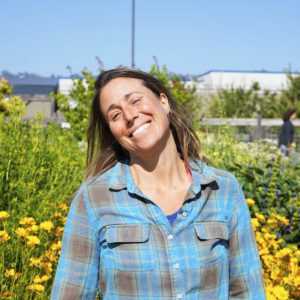
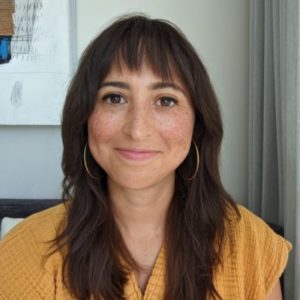

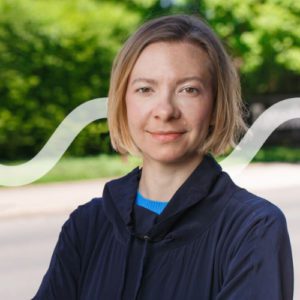
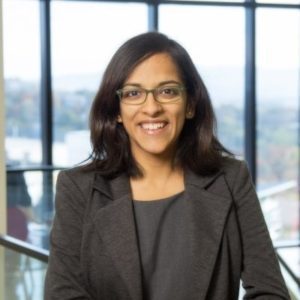
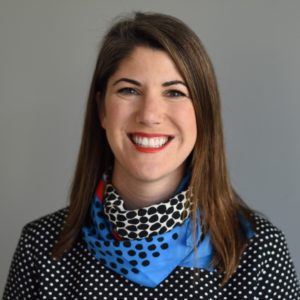
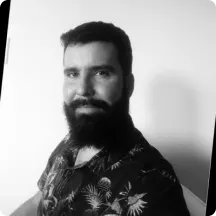

Mitch Rubin
Director Of Innovation, Elemental Excelerator (USA)

Course breakdown
Sign up to get a detailed syllabus in your inbox, or check out a week-by-week outline below
- Explore curated online food/climate resource library (videos and short readings) in prep for farmstay
- Attend live orientation Zoom session
- Engage in 1-2 live Zoom lectures on regenerative agriculture basic theory, principles and practice
- On the farm: live, work, learn
- Morning farm activities (e.g. learn how to prepare and transition a bed of annual crops, seeding, watering, weeding, harvesting, learn to milk a cow, set up irrigation and electric fencing, intro to herbalism, forestry and fire mitigation work)
- Afternoon “barn classroom” time. Sample topics: soil health principles, soil health practices and building soil carbon, farm business models, water resource management, models of transformation, food justice
- Farm to table group meals plus evening guest talks, culinary explorations with local chefs, and film screenings
- Field trips to other nearby farms
- Back at home, content summary and wrap up. Sample topics: collective action to scale models of transformation such as food sovereignty and agroecology movements, applications to urban and home-scale gardening, the future of farming, technology, and food systems
- Online group debrief, final food and farming climate action plan presentations
- Set up collaborations for ongoing project work (optional)
Get started on your regenerative agriculture journey
Watch this video with course director Laney Siegner and Niccolo Merighi, Farm Education Director at Spannocchia farm in Tuscany, talking about regenerative agriculture.
Personalized and expert instruction
Our world-class faculty bring not only farming and soil science expertise but also trained techniques in teaching and facilitation. Think of them as your personal coaches as you explore climate solutions in food and agriculture
Facilitated discussions
Before and during the farm stay, you will join in small group discussions for:
- Farmer-led presentations and Q&A on farm plans, Carbon Farm Plans, and more
- Discussions on regenerative farming and food systems challenges and opportunities
- Networking to find your future farm/food collaborators and co-founders
Hands-on farming + applied projects
In addition to working alongside farmers, you will be presented with real-world projects defined by local food system stakeholders. Sample projects include:
- Modeling GHG reduction impact of various regenerative farming practices
- Creating a "Farm Resilience" map that highlights climate risks, vulnerabilities, and opportunities
- Develop new climate-informed business models or communications materials for host farm(s)
Special events
While you are on the farm, you can look forward to the following special events and activities:
- On-farm meal prepared by famous local chef followed by Q&A
- Local wine tasting OR salmon fishing OR crabbing
- Farmer’s market exploration plus cooking lesson (source and prepare a 100% local and seasonal farm-fresh meal)
Pricing and expected commitment
US $2200 – $3600 / 4 weeks
*Prices vary based on individual farms. More details are included on the farm pages above, and on the application form.
Merit- and need-based financial aid available
Pay in installments
Cohort starting May 6, 2024
On farm week: May 19-26
- Spannocchia (Tuscany, Italy)
- Farm Dates: May 19-26
Cohort starting May 27, 2024
- Green Valley Farm + Mill (Sebastopol, California)
- Farm dates: Jun 9-15
Cohort starting Sep 30, 2024
- Spannocchia (Tuscany, Italy)
- Farm Dates: Oct 17-24
7-Day Farm Stay
Includes food and lodging for an 7-day farm stay.
Hybrid Program
Hybrid in-person and online, with opportunities for live interaction with farmers and soil scientists.
Exclusive events
3+ guest lectures from farm experts, also available for later viewing.
Online Content
Online content and community accessible to you forever.
Donate to our scholarship fund
Climate Farm School is excited to launch a partnership with the non-profit, Farmer’s Footprint, in order to accept tax-deductible donations to support a growing number of scholarship applicants for our courses.
You can also read more about Farmer’s Footprint and their mission to unite, inspire and accelerate the movement towards regenerative food systems as a means to restore human and planetary health here.
In Partnership with:
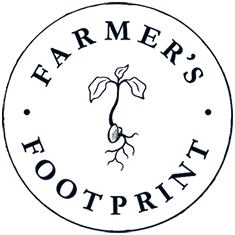
Our fellows say it best...
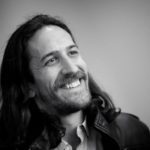
Tim Falls
"The Terra.do community has been a consistent source of support along my climate journey. Since my Monarch days in the inaugural Learning for Action cohort, I've participated in the Climate Justice Workshop, Terra Studio, and Climate Farm School. I've mentored and found mentorship. Terra fellows have joined and helped co-create the Climate Friends community, which was inspired by my experience as a Terra student. Terra.do is creating a fully circular community, and I'm grateful to be in the loop."
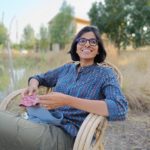
Aneri Parikh
"As I explore regenerative ag myself by setting up a small farm I can only vouch that it is truly rewarding beyond what I'd imagined. To be able to share the experience with a larger community and hopefully get more people on board would be a superb undertaking."

Kristen Hunter
"I learned more about the potential and challenges of farming in my one week with Terra living, learning and working on a regenerative farm than I could have in years doing my own research. It was truly a special experience that changed the way I think personally & professionally."
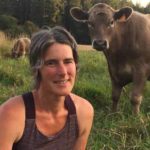
Faith Van De Putte
"It has been exciting to jump into this global community alive with innovation, energy, urgency, and smart and passionate people actually “doing” stuff, hence the “dot do.” ... We are utilizing this platform to look at our operation and recommit to an ethic of stewardship."
Who is this program for?
Already involved in farming
Aspiring home gardeners, homesteaders, and small scale farmers.
Passion for regenerative ag
Land owners or land stewards seeking ways to make a living on the land while regenerating natural ecosystems for climate mitigation and resilience.
Hands-on experience
Those wanting to explore and experience day-to-day life on a farm.
Time commitment
Working professionals with sufficient time (at least 1 full week on the farm) to dedicate to the program.
Full-time commercial farmers
You want to become a full-time commercial farmer, and want a comprehensive “learn to farm” program (these kinds of programs exist, and are typically 6-9 months in duration).
Too busy
You don’t have the time to commit to at least a week’s farm stay right now (you can always apply for later cohorts).
Frequently asked questions
This program is designed for current and aspiring food system professionals of various backgrounds, from farmers to chefs to entrepreneurs, policymakers, marketers, nutritionists, educators and artists. It is for those seeking to contribute to climate solutions via food and agriculture systems and seeking to build a community while doing so. The hands-in-the-soil work component makes it also valuable for those seeking to develop personal sustainable livelihood skills like home-scale food production and composting. See the course description and syllabus for more details.
The most important factors that we recommend considering are the timing and location of the course. If there is a farm that is relatively local to you, that is a positive thing to consider as you are more likely to be able to engage in follow up visits or collaboration with the farm if it’s within your regional food system. However, depending on your goals and motivation, learning from a farm that is a bit further away, or international, can provide a great experience as well. One last factor to consider is the farm’s relative areas of expertise. All of our host farms deliver a common ‘core curriculum’ for participants, but each farm has various areas of expertise that they bring on top of that core foundation. Explore the farm-specific pages linked above for information on the ‘themes’ for each farm, which reflect areas of specific expertise for that host farmer.
- If you cancel 2 months ahead of the online course start date, you will receive a 100% refund.
- If you cancel less than 2 months ahead of the online course start date, you will receive a 90% refund
- If you cancel in less than a month but more than two weeks ahead of the online course start date, you get a 50% refund.
- Unfortunately, if you cancel within two weeks of the online course start date, we will not be able to offer you a refund.
As long as you’re able to take at least 1 week off from your job for the farm stay, you will be able to participate in the full program. There is limited WiFi available at the farms and the in-person schedule is designed to be flexible so that if you do have to check in on work or take an important meeting, you can do so while living, learning, and working on the farm. If you can’t take time off, there is an all-online version of the course content coming soon. Get in touch with our Terra.do team if you are interested in this option.
The host farm sites have comfortable, rustic farmhouse bedrooms with shared bathrooms. There will be clean sheets and towels available, and basic bathroom products but please bring any personal items you need to be comfortable. There are indoor and outdoor showers, and indoor bathrooms as well as composting toilets on many farms. Camping on the farm is available for a lower per-night rate at most host farms, and tents and sleeping bags can be provided upon request.
Pricing options are as follows: $2400 for 4-week course with 7-day farm camping option (where available), $3000 for basic bedroom accommodation option, and $3500 for premium accommodation (where available). This is noted on the application form for relevant farms. All pricing for courses follows a sliding scale model, and we encourage applicants to self-select the highest pricing option they are comfortable with, as this helps serve our program mission of fairly compensating all farmers for their time as farmer-educators and program partners.
We want this program to work for learners of all stripes, regardless of individual or organizational ability to pay. Please apply—we will make every effort to accommodate the circumstances of qualified students with scholarship funds, within the limitations of ensuring that hard costs of running the program and making payment to farmers are met.
Many organizations have learning or professional development budgets for their employees. We encourage you to enquire about and utilize this budget to attend the course, as several program alumni have done in the past. Terra.do can help you get reimbursed for the course by providing an invoice, a certificate, and any other documentation you need. If you have approval from your company, we can also arrange for your company to pay directly.
You will receive a suggested packing list upon payment/confirmation of your spot in the course. Comfortable clothes for working outdoors, suitable footwear, and sun protection are key items to bring.
Yes! Based on our successes and learnings from running courses throughout 2022, we are developing capacity to offer shortened and customized versions of the core program for mission-aligned groups, teams within companies, and organizations. Please reach out to Course Director Dr. Laney Siegner (laney@terra.do) to express interest in a custom course for your team and include any relevant details about date/time of year, location, team size, etc.